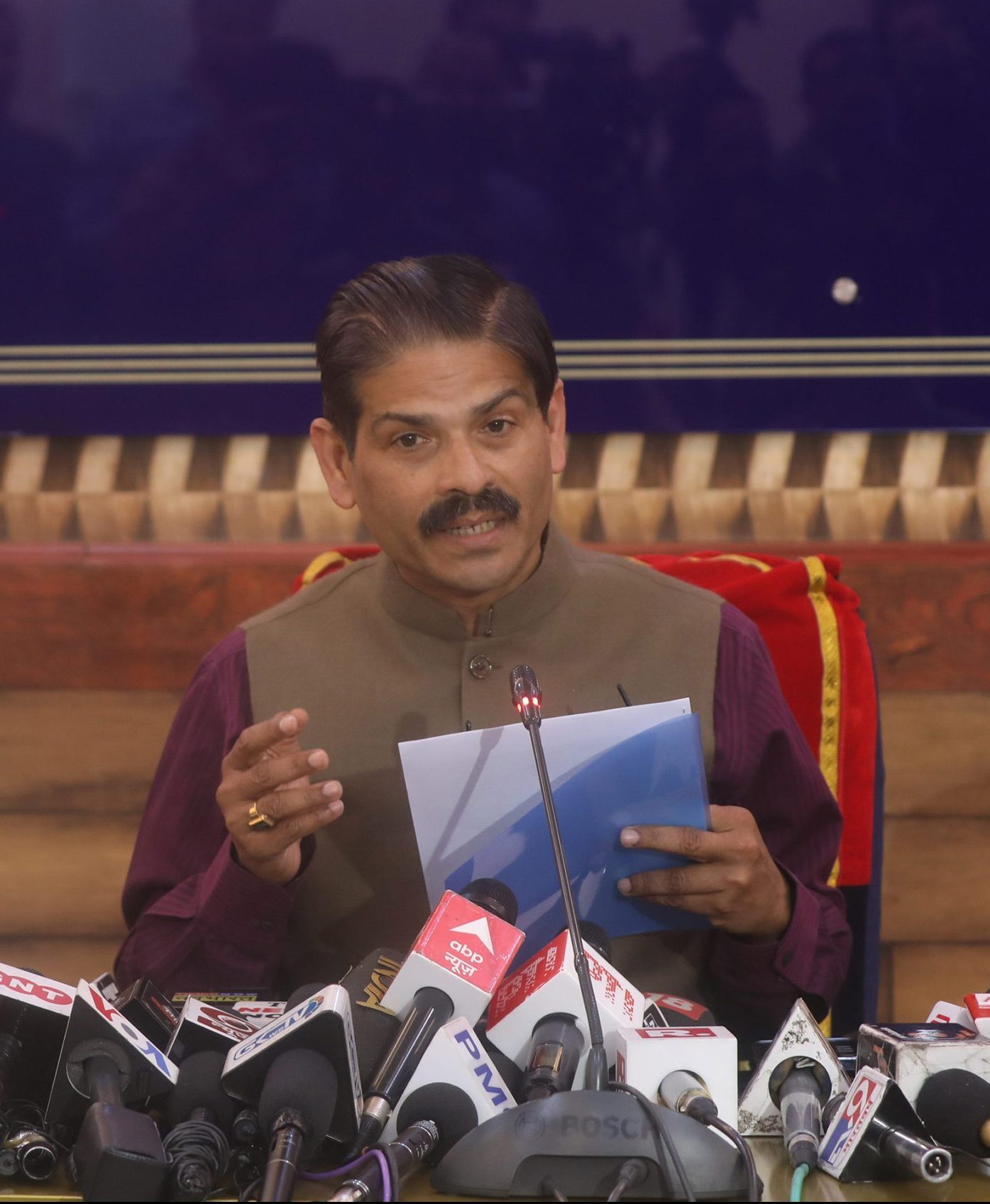Srinagar: Over the past four years, J&K has made significant strides in strengthening grassroots democracy through Panchayati Raj Institutions (PRIs). Transparent elections in 2019-20 saw the election of 33,000 representatives across 20 districts and 4291 panchayats. Infrastructure development is in progress, with 20 District Development Council and 48 Block Development Council office buildings under construction. Capacity-building efforts involved sending 6,000 elected representatives on exposure visits and plans for 10,000 more. PRIs have been empowered with the authority to grant building permissions and have been e-enabled for efficient communication. Monthly honorariums ensure financial stability for representatives, and security concerns are addressed with compensation for the next of kin in case of loss due to militancy-related incidents. Coordination is improved with Panchayat Prabhari Officers, and excellence is promoted through awards. Infrastructure development includes Panchayat Ghar construction and solarization of Gram Panchayats. Financial management is enhanced with the creation of Panchayat Accounts Assistant positions. These efforts, along with the 73rd Constitution Amendment Act, have empowered PRIs to play a pivotal role in local governance and national development.
Successfull Stories
Palli: Leading the Nation as a ‘Carbon Neutral Panchayat’
Nestled in the serene landscapes of Jammu and Kashmir’s Samba district, the unassuming hamlet of Palli has achieved something truly remarkable. Palli has become the first ‘carbon neutral panchayat’ in the entire country, setting a shining example for sustainable development.
This milestone was achieved through the installation of a cutting-edge 500 KV solar plant, completed in an astonishing three weeks. Prime Minister Narendra Modi proudly dedicated this solar plant to the nation, highlighting Palli’s incredible achievement. By harnessing the power of renewable energy, Palli has not only reduced its carbon footprint but has also ensured uninterrupted power supply to its residents.
Palli’s journey towards sustainability is a testament to the potential of local governance when combined with innovative solutions. It serves as an inspiration for other panchayats across India to embrace clean and green energy sources, contributing to the nation’s commitment to combating climate change.
Village Common Lands: The Green Asset Revolution
Another impactful initiative driving change at the grassroots level is the Village Panchayat Plantation Committees (VPPCs) in Jammu and Kashmir. These committees, headed by the respective Sarpanchs, have undertaken a mission to transform vacant Village Common Lands and State lands into thriving green assets. Collaborating with the Social Forestry Wing under the Department of Forests, Environment, and Ecology, they have embarked on a journey of afforestation and sustainable land management.
The VPPCs identify suitable lands and plant multipurpose tree species with technical support from Social Forestry officials. These plantations are protected and scientifically managed, with active participation from local households. In return for their involvement in protecting these green assets, rural households receive essential resources such as fodder, fuelwood, and small timber.
During the 2021-22 fiscal year, over 20,000 rural households across 1646 Gram Panchayats benefited from this initiative, receiving free supplies of fodder and fuelwood. Furthermore, a commendable provision was enacted by the Jammu and Kashmir Government, directing 75% of funds earned from the sale of mature plantations to Village Panchayat Funds. These funds are then used for afforestation activities and various other village utility projects, ranging from infrastructure improvements to healthcare and education facilities.
In the 2022-23 financial year, the proactive involvement of Gram Panchayats has led to the plantation of an impressive 32 lakh plants in 3500 GPs, marking a substantial increase compared to previous years. This demonstrates the growing commitment to environmental conservation and sustainable rural development.
In conclusion, these two success stories, exemplified by Palli’s ‘carbon neutral’ achievement and the remarkable Village Common Lands plantation drive, illustrate the transformative power of grassroots democracy and the vital role of PRIs in fostering local governance and development. These initiatives reflect dedication of JK Govt to inclusive and sustainable progress, ensuring a brighter future for its citizens and the environment.








